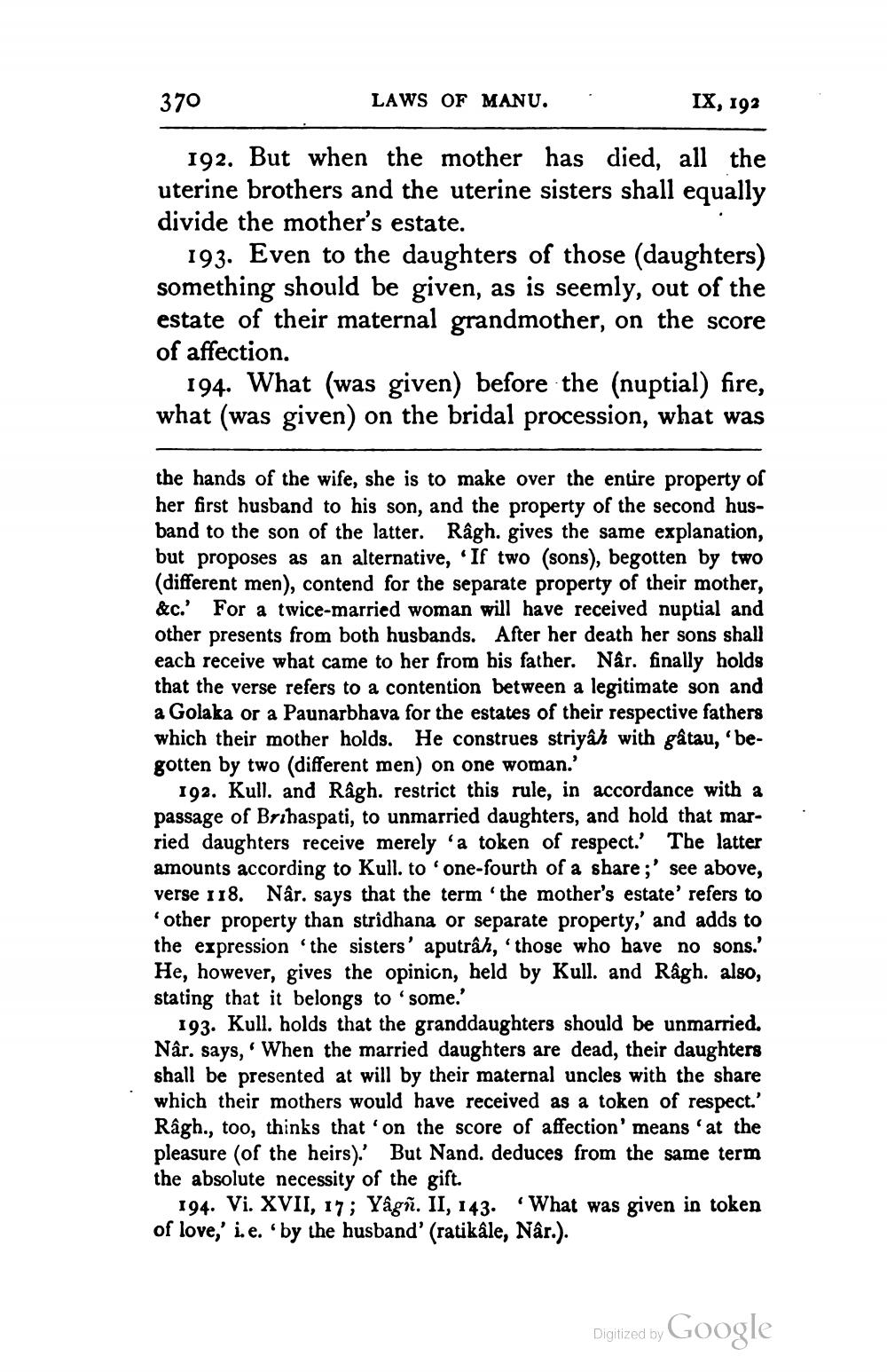________________
370
LAWS OF MANU.
IX, 192
192. But when the mother has died, all the uterine brothers and the uterine sisters shall equally divide the mother's estate.
193. Even to the daughters of those (daughters) something should be given, as is seemly, out of the estate of their maternal grandmother, on the score of affection.
194. What (was given) before the (nuptial) fire, what (was given) on the bridal procession, what was
the hands of the wife, she is to make over the entire property of her first husband to his son, and the property of the second husband to the son of the latter. Râgh. gives the same explanation, but proposes as an alternative, If two (sons), begotten by two (different men), contend for the separate property of their mother, &c. For a twice-married woman will have received nuptial and other presents from both husbands. After her death her sons shall each receive what came to her from his father. Når. finally holds that the verse refers to a contention between a legitimate son and a Golaka or a Paunarbhava for the estates of their respective fathers which their mother holds. He construes striyâh with gâtau, 'begotten by two (different men) on one woman.'
192. Kull. and Râgh. restrict this rule, in accordance with a passage of Brihaspati, to unmarried daughters, and hold that married daughters receive merely 'a token of respect.' The latter amounts according to Kull. to 'one-fourth of a share;' see above, verse 118. Når. says that the term 'the mother's estate' refers to
other property than stridhana or separate property,' and adds to the expression 'the sisters' aputrah, 'those who have no sons.' He, however, gives the opinion, held by Kull. and Ragh. also, stating that it belongs to some.'
193. Kull. holds that the granddaughters should be unmarried. Nâr. says, When the married daughters are dead, their daughters shall be presented at will by their maternal uncles with the share which their mothers would have received as a token of respect.' Râgh., too, thinks that on the score of affection' means at the pleasure of the heirs).' But Nand. deduces from the same term the absolute necessity of the gift.
194. Vi. XVII, 17; Yâgñ. II, 143. What was given in token of love,' i.e. "by the husband' (ratikâle, Nár.).
Digitized by Google




